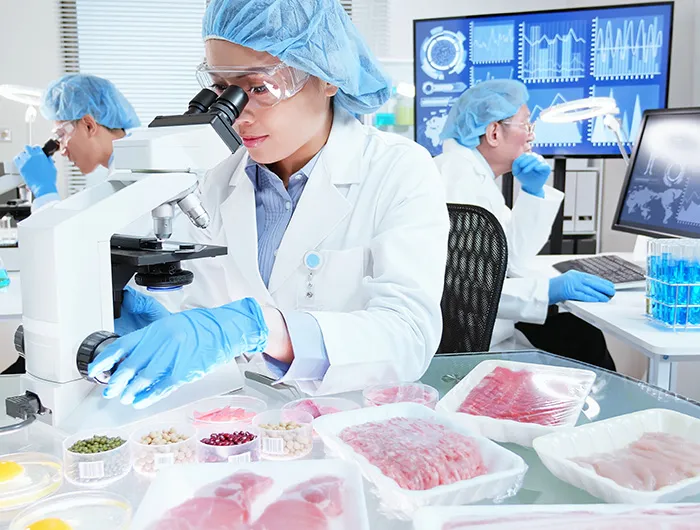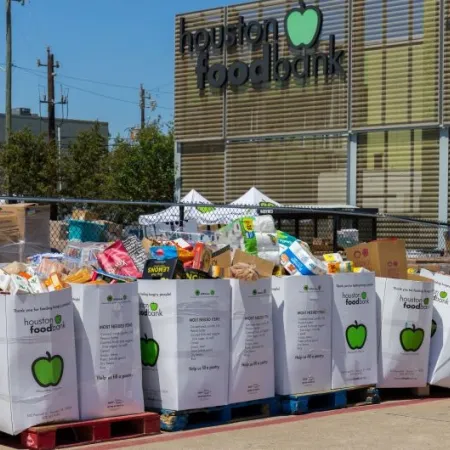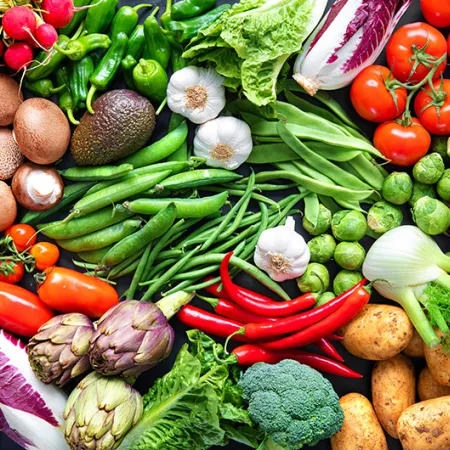Will food safety workers be fired or lose pay during the government shutdown?

ryanking999 - stock.adobe.com.
With Congress gridlocked over whether to cover subsidies for health insurance, the current shutdown is already one of the longest in history, with the record held by a partial shutdown of certain agencies for 34 days occurring in 2018 and 2019 under the first Trump administration.
The White House is threatening mass firings of federal workers whose funding has lapsed, and has reportedly circulated a draft legal memo stating that furloughed federal workers need not be paid, unprecedented moves that would mean any workers not declared “essential” enough to work during the shutdown would be at risk of temporarily losing their incomes and possibly also their jobs.
Does that mean that food safety inspectors and other vital food safety positions that are currently on furlough may be at risk if plans to deny pay or lay off federal workers continue?
Who can work during a shutdown?
Federal employees able to work during the shutdown either must be paid by sources outside the annual funding appropriated by Congress (for example, “user fees” paid for drug approvals), or deemed “essential” enough to work without pay, meaning they are needed to prevent “imminent threats” to human life or property.
That’s a very narrow definition of who is “essential.” Running the federal government using only these emergency workers is a bit like running a hospital using only the security and emergency room staff: “Essential” workers can stabilize conditions in an emergency, but a lot of key services most of us would see as critical are not being carried out.
Shutdown impact on food safety inspections
The two main food safety agencies, FDA and USDA, are both substantially included in the current shutdown and are not funded. While about half of FDA’s budget comes from user fees, 99 percent of the agency’s foods program is funded through annual appropriations from Congress.
At USDA, federal meat and poultry inspectors are considered “essential” because animals cannot be slaughtered without an inspector present. These live animal shipments have nowhere to go if they are not processed, leading to an emergency if inspectors are not able to work.
Things are different at FDA. With 221,620 food facilities and 35,000 produce farms to regulate, a visit from inspectors was already rare prior to the shutdown, and inspectors are not required to be present to produce or process FDA-regulated foods.
Under shutdown operating plans, these routine FDA inspections are not “essential,” meaning inspectors can be furloughed, with the exception of those working on outbreak investigation or other special circumstances. The FDA also has other food safety workers who can continue work during a shutdown, such as workers who review adverse event reports, announce recalls, and screen imported foods.
Some food safety inspections are also carried out by state governments, and these will continue during the government shutdown.
Inspections can be critical to correct risky practices before they cause an outbreak. During the COVID-19 pandemic, routine inspections were paused for infant formula, leading to delays in inspection of an Abbott facility in Sturgis, Michigan. That facility was subsequently tied to a deadly outbreak of Cronobacter bacteria, a risk that could have been caught sooner if inspection had occurred on schedule.
Plans can change
Plans covering who works during a shutdown can change—even in the middle of a shutdown. During the 2018-19 government shutdown, FDA initially paused all routine domestic food facility inspections but then announced it would resume at least some “high risk” inspections in response to negative media attention.
During the current shutdown, FDA briefly announced it would not be updating the table it uses to inform the public about ongoing outbreak investigations—although it would still publish alerts when needed to advise consumers when to discard unsafe foods. That decision was promptly reversed, meaning leaders at the agency ultimately considered that work essential.
Will food safety inspectors lose their jobs?
So far, the Trump administration has not included food safety inspectors in widespread mass layoffs, although some workers in the FDA’s food program were laid off in mass firings that took place in the spring.
President Trump has not yet indicated which programs would be targeted in mass layoffs, and the Center for Science in the Public Interest has encouraged the administration not to target federal food safety workers.
However, if the White House fails to pay federal workers who have been furloughed, it’s likely that some inspectors and other food safety workers could see a temporary pay cut, given that only certain inspections will take place during the shutdown.
President Trump: Don’t fire, deny pay to federal food safety workers
Longer-term impact
Delays in inspections can have a longer-term impact. FDA has never overcome the backlog in inspections caused by the 2018-19 government shutdown and 2020 COVID-19 pandemic, and has in fact fallen progressively further and further behind its inspection targets mandated by Congress.
FDA also inspections facilities abroad, and much of our food is imported, including most of our fresh fruits, vegetables, and seafood. The agency has never been able to inspect these facilities at the rate required by Congress, and only performs an average of about 900 foreign inspections per year, only five percent of its congressionally mandated target.
In addition to routine visits, FDA often faces long delays following up on problems identified in inspections. An inspector general report released in June this year found that in the vast majority of cases (91 percent), it took the agency longer than six months to follow up to ensure the issues identified in the inspection were addressed.
One reason FDA fails to meet its targets is that the agency has long struggled to recruit and retain inspectors. Even before President Trump took office, the agency had a total of 432 investigators, or 90 percent of the roles budgeted, for conducting all food inspections in the US and abroad. While these workers were not part of mass layoffs, a recent hiring freeze implemented by the Trump administration, as well as a push for voluntary departures by offering early retirement and other buyouts, has taken its toll: nearly 20 percent of human food inspection positions are now vacant, and the rate is even higher for infant formula inspectors, where 40 percent of positions stand vacant.
In addition to routine inspections, longer-term food safety initiatives, including policy work to help prevent foodborne illnesses and diet-related diseases, are halted during a shutdown, jeopardizing public health as FDA fails to take action to promote safety and nutrition.
FDA is currently engaged in post-market safety assessment of chemicals in the food supply, and is reviewing a list of 32 chemicals present in foods, including direct additives like synthetic food dyes and titanium dioxide, environmental contaminants like lead, mercury, and arsenic in baby food, and chemicals used in food packaging like BPA and phthalates. All of this longer-term work will be frozen as the shutdown continues.
Should I avoid riskier foods during the government shutdown?
With so many federal workers unable to perform their duties, are some foods not safe during a government shutdown? A longer-term shutdown certainly could lead to missed opportunities in food safety that increase the risk of outbreaks; it’s hard to predict where these issues will occur, and outbreaks in general are rare.
Consumers seeking to stay safe during a shutdown should follow the same advice that keeps them safe at any time by avoiding high-risk foods, including raw or undercooked meat, eggs, and poultry; unpasteurized milk, juice, sprouts, and soft cheeses; and uncooked dough or batter made with raw eggs or flour.
Consumers who are elderly, children, people who are pregnant, and those with chronic conditions that could weaken the immune system are even more vulnerable and can take extra steps to stay safe by avoiding unheated deli meats, smoked fish, sliced deli cheeses, and premade deli salads like egg or tuna salad. All of these foods can grow Listeria even at refrigerated temperatures, a particular risk for sensitive groups.
CSPI is your food & health watchdog
We envision thriving communities supported by equitable, sustainable, and science-based solutions advancing nutrition, food safety, and health.
As a nonprofit organization that takes no donations from industry or government, CSPI relies on the support of donors to continue our work in securing a safe, nutritious, and transparent food system. Every donation—no matter how small—helps CSPI continue improving food access, removing harmful additives, strengthening food safety, conducting and reviewing research, and reforming food labeling.
Please support CSPI today, and consider contributing monthly. Thank you.
How CSPI is fighting threats to public health
CSPI supports protecting sensitive locations from immigration enforcement
Government Accountability

The USDA’s Food Security Survey is irreplaceable
Government Accountability

What changed in the new Dietary Guidelines & why it matters
Healthy Eating

5 things we want to see in the 2025 Dietary Guidelines
Healthy Eating

CSPI in 2025: Advancing food safety & public health for all
CSPI


